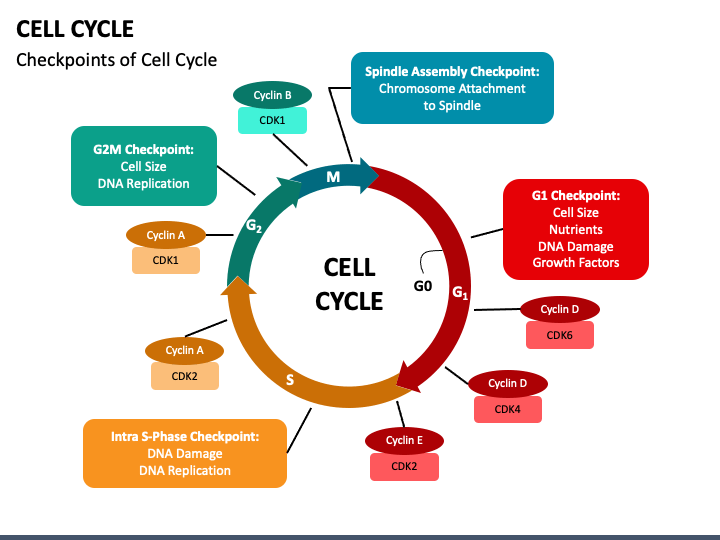CIE AS Biology Revision Notes 2025 Biology Diagrams CELL CYCLE Interphase Mitotic Phase - longest phase (90%) (Cell Division) - carrying out normal functions - DNA replication - all other organelles replicated Mitosis centre of cell forming a cell wall between the two new identical daughter cells Made By: Tarim Shahab. Title: Cell Cycle Chart.doc The Complete Cell Cycle. Remember, mitosis is the process of cell division, but it's just a portion of the full cell cycle. Figure 5 shows approximately how long a cell spends in each stage of the cell cycle: Figure 5. The cell cycle consists of interphase and the mitotic phase. During interphase, the cell grows and the nuclear DNA is duplicated. It is the first phase of the cell cycle, recognized by the growth period where the chromosome gets duplicated as the cell prepares for division. Interphase happens between one cell division or mitotic (M) phase and the next. It is the longest part of the cell cycle involving three sub-phases. The typical duration of this phase is 23 hours.

The diagram of cell cycle provides insight into the essential process that all cells undergo to grow, replicate, and generate new cells. A cell cycle showcases a continuous sequence crucial for maintaining organism function and growth. The diagram of cell cycle class 11 is an important diagram which is often asked in the examination. The cell cycle phases include Interphase and M-phase, where In the cell cycle, interphase doesn't just occur before mitosis—it also alternates with mitosis. It's important to remember that this is a recurring cycle. When mitosis ends, interphase starts up again! In fact, in the grand scheme of the cell cycle, mitosis is a much shorter phase than interphase. (Kelvinsong/Wikimedia Commons) Phase 1

TeachMePhysiology Biology Diagrams
The samples are subsequently analyzed using flow cytometry to assess ploidy, identify abnormal DNA stemlines, and estimate the DNA index (DI) and cell cycle phase distributions of stemlines. During the cell cycle phases, DNA levels change, facilitating the use of DNA dyes such as 7-AAD to generate characteristic cellular DNA content profiles SynchronizingCells$! Cell!populations!divide!asynchronously.!Thus,!at!any!given!moment,!a dishof!tissue!culture!cells!will!comprise!individualcells!thatare!in!each!

G 1 Phase. The first stage of interphase is called the G 1 phase, or first gap, because little change is visible. However, during the G 1 stage, the cell is quite active at the biochemical level. The cell is accumulating the building blocks of chromosomal DNA and the associated proteins, as well as accumulating enough energy reserves to complete the task of replicating each chromosome in the
PDF Cell cycle overview Biology Diagrams
Phases of the Cell Cycle. The cell cycle is a 4-stage process consisting of Gap 1 (G1), synthesis (S), Gap 2 (G2), and mitosis (M), which a cell undergoes as it grows and divides. After completing the cycle it either starts the process again from G1 or exits through G0. From G0, the cell can undergo terminal differentiation. Revise mitosis, the cell cycle and how stem cells work in humans and plants for GCSE Biology, AQA.

